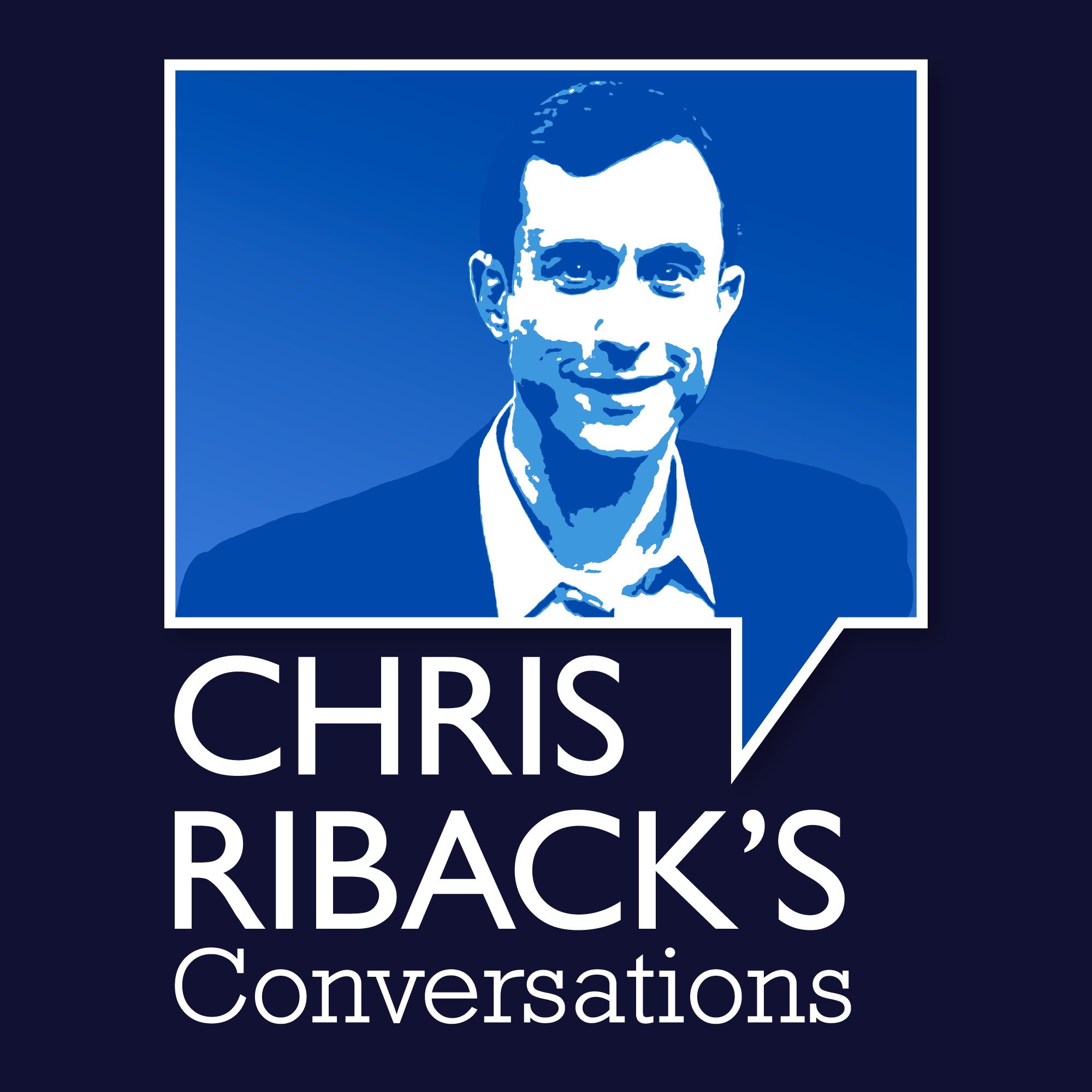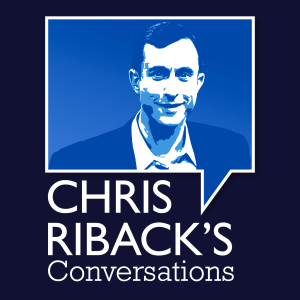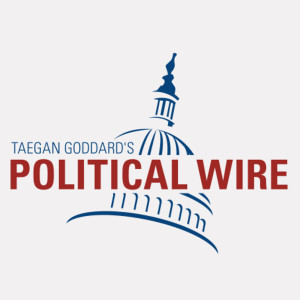
293.5K
Downloads
176
Episodes
Engaging smart thinkers on issues of the day. Subscribe for newsletter & show notes at chrisriback.com (podcast formerly "Political Wire Conversations")
Engaging smart thinkers on issues of the day. Subscribe for newsletter & show notes at chrisriback.com (podcast formerly "Political Wire Conversations")
Episodes

Friday Aug 02, 2019
Philip Mudd: Trump & the Attack on U.S. Intelligence
Friday Aug 02, 2019
Friday Aug 02, 2019
It was a perfect week to have Philip Mudd, CNN counterterrorism analyst, on the podcast. Phil spent some 25 years at the highest levels of the CIA – reaching Deputy Director of the National Counterterrorism Center – and FBI, where he was hired to be its first National Security Branch Deputy Director by Robert Mueller.
So when you have Mueller’s Congressional Hearings nine days ago followed by President Trump’s tweets five days later announcing his intention to replace our top intelligence chief with a Republican House member who, as the Washington Post wrote, has alleged anti-Trump bias at the FBI and Mueller’s team, directly accusing Mueller of violating “every principle in the most sacred of traditions” of prosecutors – when you have that and you want to know what in the world is the state of our national intelligence and law enforcement agencies, well, Phil Mudd is who you call.
But truth be told, that timing was mostly luck. The real reason I wanted to talk with Mudd: He has written an important, first of its kind book: Black Site: The CIA in the Post-9/11 World. Mudd not only takes us inside the CIA, but inside one of the most hidden parts of the CIA, the part known internally as “The Program”: The secret Black Sites where the so-called “enhanced interrogation techniques” and where our national debates on torture, waterboarding, counterterrorism, and the deep responsibility to prevent another attack were born.
How were those decisions made? How were they justified? What did CIA officers, deputy directors, directors – even people who interrogated prisoners – think and feel about what they were doing? And how do they feel about it now?
For show notes & my newsletter, go to chrisriback.com.

Friday Jul 26, 2019
Tim Alberta: How Trump Filled the GOP Leadership Vacuum
Friday Jul 26, 2019
Friday Jul 26, 2019
What happened to the Republican Party? You’ve heard of it: One of the two major political collectives in America… the one that counts Abraham Lincoln and Ronald Reagan among its heroes?
The modern GOP branded itself on ideals of fiscal responsibility, fighting dictators from the Soviet Union to Saddam Hussein, and personal morality.
Today, of course, the U.S. deficit is more than $1 trillion. New age dictators are our friends. And personal morality? Well, not so much.
The GOP change has been swift, stark, and you might be led to believe, all because of one person: Donald Trump.
But is that true? Was Trump the cause or the most logical outcome? Perhaps more importantly, is there any going back? Is the GOP now the POT – the Party of Trump?
That’s what I asked Tim Alberta, Politico Magazine’s Chief Political Correspondent and author of “American Carnage: On the Front Lines of the Republican Civil War and the Rise of President Trump.”
For show notes & my newsletter, go to chrisriback.com.

Friday Jul 19, 2019
Robert Tsai: Is Justice Possible? Your Supreme Court Questions Answered
Friday Jul 19, 2019
Friday Jul 19, 2019
You may have heard last week’s conversation on the Supreme Court.
Well, there’s something about the Supreme Court that gets listeners’ attention. I received a lot of follow-up questions – so many, that I wished I had immediate access to another constitutional scholar.
Turns out, I did.
I already had recorded the second half of the conversation you’ll hear today with Robert Tsai. Tsai is Professor of Law at American University and a prize-winning essayist in constitutional law and history. Previously, he clerked for two federal judges and worked civil rights lawyer in Georgia. He has written three books, the most recent of which is Practical Equality: Forging Justice in a Divided Nation.
When we consider remedies to the various inequalities that define these times – from voting restrictions and oppressive measures against migrants to the rights of sexual minorities, victims of police action, and even racism in the criminal justice system – existing laws to address equality are often incomplete.
But in exploring the Constitution and reexamining important historical cases, Tsai explains how legal ideas that aren’t necessarily about equality at all — ensuring fair play, acting reasonably, avoiding cruelty, and protecting free speech — have been used to overcome inequality in the past and can serve as potent alternative tools to promote equality today.
Simply, Tsai offers a distinct view and outlines the possible innovative legal measures to overcome injustice.
But with all the comments from last week’s podcast, I asked Robert for a favor – would he be willing to do a quick update call where I could ask him some of the Supreme Court follow-ups I got from listeners. He agreed, so here it is.
For show notes & my newsletter, go to chrisriback.com

Friday Jul 12, 2019
Adam Liptak: How Far Did Trump Tip the Supreme Court Balance?
Friday Jul 12, 2019
Friday Jul 12, 2019
It was the Supreme Court session Democrats feared and Republicans had waited a generation for – a solidly conservative 5-4 majority. It took the Merrick Garland block and Brett Kavanaugh hearings to get here, and now that first session is complete.
So how’d it go? Were the fears and hopes realized? That’s what I asked Adam Liptak, who covers the Supreme Court for The New York Times.
As you’ll hear, for all of this session’s surprise alliances and shifting balance, it may turn out to be an important prelude that sets up a supreme bonanza: A 2020 election year session that confronts some of our most contentious issues – Immigration, the Second Amendment, discrimination against gay & transgender workers, and possibly abortion, as well as health care and the Affordable Care Act.
For show notes & my newsletter, go to chrisriback.com

Friday Jul 05, 2019
Angela Stent: Explaining Putin’s World
Friday Jul 05, 2019
Friday Jul 05, 2019
As Trump’s interactions with global leaders raise never-ending questions, few are as perplexing – or, if we only could understand it, might explain so much – as the one with Vladimir Putin.
When the Cold War ended, it all seemed so clear: History was over, and liberal democracy would deliver a new Russia. But as the so-called liberal modernizers and democratic reforms emerged, so too did a period of extreme poverty and oligarchic wealth – a debilitating era of Russian economic and social challenges, even humiliation. As that time ran its course, an apparent savior emerged – a single man who refused to consider Russian weakness and instead redefined Russian power and pride. A man who recently told the Financial Times: “The liberal idea has become obsolete.”
So what happened? How is today’s polarized, disrupted world one in which Russia can thrive?
Professor Stent is director of the Center for Eurasian, Russian and East European Studies and a professor of government and foreign service at Georgetown University. She has served as national intelligence officer for Russia and Eurasia at the National Intelligence Council, as well as in the Office of Policy Planning at the U.S. State Department. She has written numerous publications, including “The Limits of Partnership: US-Russian Relations in the Twenty-First Century, which earned her the American Academy of Diplomacy’s Douglas Dillon prize for the best book on the practice of American Diplomacy. She’s also a non-resident Senior Fellow at the Brookings Institution.

Friday Jun 28, 2019
Jared Cohen: Accidental Presidents
Friday Jun 28, 2019
Friday Jun 28, 2019
With 20 candidates and 2 Democratic debates spread over 48 hours this week, the 2020 Presidential campaign season is officially underway. We know the process: For the next 16 months, candidates will debate, boast, fundraise, debate, and fundraise some more. Then on Nov. 3, 2020, we’ll have the decision – the President will be chosen.
But what about when we get a new President not over two years, but in a heart beat? When we don’t elect our President following an intense, 500-day process, but rather get our new leader instantaneously and by accident.
I’m talking, of course, about the times when we’ve gotten a new President because the sitting one died.
So what does history tell us about these leaders, the process, our country – about what happens when accidents occur?
Jared Cohen has written the NY Times best-selling book – “Accidental Presidents: Eight Men Who Changed America.” Cohen offers a unique way look at our history – and the many ways our country evolved purely based on chance: Because an assassin or disease forced an immediate change in our land’s highest office.
For show notes & my newsletter, go to chrisriback.com

Friday Jun 21, 2019
Joseph Stiglitz: Saving Capitalism From Itself
Friday Jun 21, 2019
Friday Jun 21, 2019
It’s already one of the major issues of the 2020 presidential campaign: Does American capitalism still work?
In the face of ever widening income disparity – not just exponential upward movement at the top, but also, at best, stagnation near the bottom — economic inequality is a key social and political topic.
Which is why Joseph Stiglitz’ 55th high school reunion was so telling.
It was about four years ago, the Nobel Prize winning economist was reminiscing with old friends in Gary, IN, when he heard a story that made him stand up straight. Then he heard another. And another.
These classmates’ stories brought to life the statistics Stiglitz had been seeing in his economic charts: Lost jobs, poor access to health care, shorter life spans, diminishing hope. The numbers hadn’t lied, and now they were talking to Stiglitz at his high school reunion.
Their message: The economy was broken. In fact, more than just the economy wasn’t working – Capitalism itself seemed off.
Following that class reunion, Stiglitz further saw an erosion of society’s pillars, and – being an economist – connected them all: The economy, capitalism, and democracy. He sounded the alarm, and the result is his new, powerful book: “People, Power, and Profits: Progressive Capitalism for an Age of Discontent.”
Beyond the Nobel Prize, Stiglitz' career highlights include: He served as President Clinton’s Chair of the US Council of Economic Advisers and Chief Economist of the World Bank. He’s the best-selling author of more than 10 books and today is a University Professor at Columbia University.
For show notes & my newsletter, go to chrisriback.com

Wednesday Jun 19, 2019
We're Back: New Season, New Name
Wednesday Jun 19, 2019
Wednesday Jun 19, 2019
A few updates:
First, we’re back. I’ve been doing a lot of prep for this new podcast season. I think you’re going to like it.
Second – and maybe this should be first – you may have noticed the name change from Political Wire Conversations to Chris Riback’s Conversations. Why the change?
I love politics and public policy. In these podcasts, I’ve talked with Senators, Governors, Mayors, and candidates; Generals, historians, journalists, and professors; Strategists, pollsters, and more – thinkers, writers and doers across the political spectrum.
But these aren’t my only conversations. I also talk with leaders, thinkers and doers in business, technology, science, and the global marketplace. Guests include Nobel Prize laureates, a U.S. Presidential Medal of Science winner, global CEOs, two U.S. Council of Economic Advisers chairs, tech & media entrepreneurs, the most incredible cancer researchers, and more.
I like these conversations a lot. More importantly, I don’t see them as distinctly different from the so-called political podcasts I do. For example – is climate change science or public policy? Are economics for business audiences or political ones? Cancer researchers are often funded, in part, by government agencies – politics or medicine?
The fact is: Today, everything connects. In our extraordinarily divided times – when reason and nuance and context feel like Stone Age relics – understanding those connections simply must be our way forward.
Let me know what you think at chrisriback.com. Thanks for listening – and welcome to Chris Riback’s Conversations.

Thursday Dec 06, 2018
Sen. Maggie Hassan: 'No More Medical Surprises'
Thursday Dec 06, 2018
Thursday Dec 06, 2018
Now look at our health care. You go to the Emergency Room. They take your insurance. Only it turns out, your in-network ER is being staffed by out-of-network providers. Suddenly, in addition to the surprise of having landed in the ER in the first place, you’ve got thousands of dollars in surprise medical costs.
What you wouldn’t stand for in a restaurant can happen any day in an emergency room – and New Hampshire Sen. Maggie Hassan wants to do something about it.
Sen. Hassan has introduced a bill titled the “No More Medical Surprises Act.” As you’ll hear, her bill aims not only to protect patients from the outrageous bills that suddenly land folks deep in medical debt, she borrows from baseball to find a market-based solution to the problem. And no, that doesn’t involve using a baseball bat… though I bet she wishes it could.
While I had Sen. Hassan for the conversation, I also wanted to take the opportunity to ask about another important and divisive issue that – like health care – went to the heart of the recent Midterm elections: Border Security and Immigration. Sen. Hassan sits on the Homeland Security and Governmental Affairs Committee, and I wanted to know: Do Democrats have a clear message on border security and immigration?
In our extraordinarily partisan times, is it reasonable to hope for agreement on a health care bill? What about immigration? You’ll want to hear Sen. Hassan’s answers.

Monday Oct 29, 2018
Live from Harvard's Kennedy School
Monday Oct 29, 2018
Monday Oct 29, 2018
This is a special live edition of Political Wire Conversations.
On Friday, I hosted an outstanding live event and discussion at Harvard’s Kennedy School: Midterm Elections Preview: Blue Wave or Red Save?
I was joined onstage by an All Star cast of panelists:
- Rick Wilson, Republican Political Strategist
- Asha Rangappa, CNN Legal & National Affairs Analyst
- Clare Malone, 538 Political Reporter
- Taegan Goddard, Political Wire Publisher
